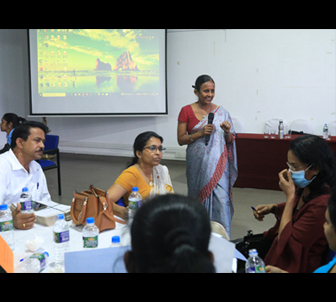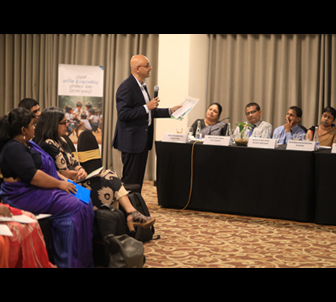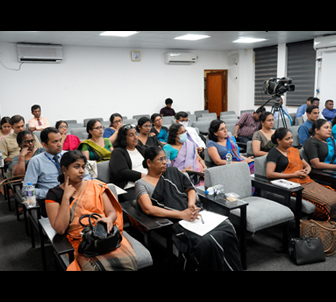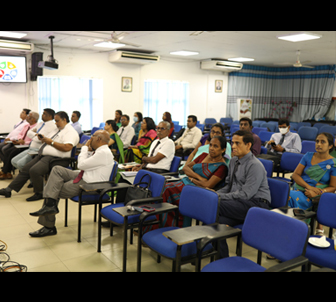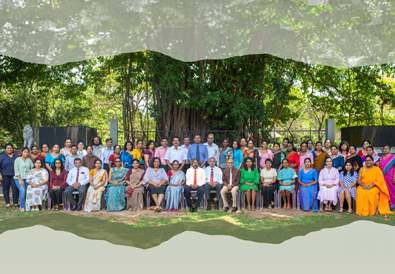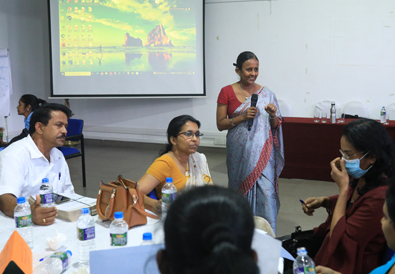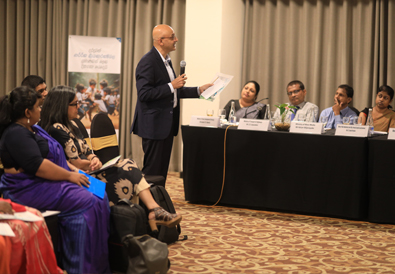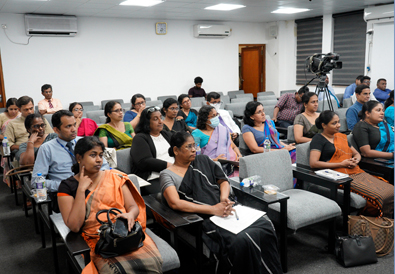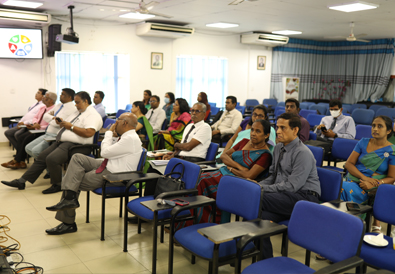Overview
Early childhood (formative years) up to 8 years of age, is the most vital period of life where foundation for a range of habits and behaviors related to health and wellbeing are laid. Until the age of 2 years, majority of Sri Lankan children are cared at home by parents or guardians, and grassroot level primary health care teams of the health system.
Thereafter, mainly preschools (Early Childhood Development Centers), primary and secondary schools sequentially step into the development and wellbeing cycle of a child. Therefore home, preschool and primary school should create conducive environments for child to develop healthy behaviors from early childhood in a synchronized continuum.
Children who are healthy in early life, not only grow up to be healthier adults, they are also better educated, earn more and contribute to the economy optimally. Hence, investing on social and behavior change in child health promotion during early childhood up to the end of primary school age, will have a higher return on investment for the society, economy and development of the country. Fourteen key sectors are identified as multi-sector stakeholders related to child health promotion. Multi-sector collaboration and integrated action are needed to make expected social and behavior changes for child health promotion guided by health promotion principles.
With this backdrop National Program on Social & Behavioral Change for Child Health Promotion was initiated in 2024, to ensure healthy lifestyles are initiated from formative years and continued to adolescence. Desired social and behavior outcomes were identified by content specialists together with HPB People Engagement Network (HPB PEN) members.
Vision: Happy, healthy and secure childhood to nurture wholesome Sri Lankans
Mission: Equipping parents, caregivers and communities to develop enabling environments which facilitate children to have a happy, healthy and secure childhood as a foundation, and empower children to make healthy choices in becoming wholesome adult citizens of Sri Lanka
Objectives
- To mediate with all different administrative frameworks and settings to ensure child health promotion is synchronized in a continuum
- To facilitate health promotion environments for improving physical, emotional and social wellbeing of children by facilitating provision of early learning opportunities giving special emphasis on improving health related habits and behaviors
- To optimize child friendly services and environments by incorporating child centered social and behavioral change principles into all policies, standards, guidelines and action plans related to children
- To make child health and wellbeing a social responsibility through public engagement and multi-sectoral partnerships
- To improve child- parent attachment by improving responsive caregiving by parents and caregivers
- To empower children, parents and caregivers to minimize child maltreatment (negligence, neglect & abuse) and improve safety & protection
- To conduct operational research and evaluate child health promotion outcomes for evidence informed program management, and good governance.
Guiding Principles
- Integrated policies, standards, guidelines and regulations
- Multi-sectoral partnerships
- Life-course approach
- Synchronized health promoting settings
- Uniform child social and behavior change communications and interventions (SBCC&I)
- Enabling people and places
- Co-creation
Fourteen Ministries were mapped as key stakeholders and advocated for multi-sectoral shared responsibility for the identified social and behavioral changes for child health promotion. The National Steering Committee for Child Health Promotion was established and first meeting held chaired by Secretary Health.
- Presidential Secretariat
- ministry Of Women and Child Affairs And Social Empowerment
- ministry Of Provincial and Local Governments And Home Affairs
- Provincial Directors of Early Childhood Development
- ministry Of Education
- ministry Of Transport
- ministry Of Urban Development & Housing
- ministry Of Highways
- ministry Of Public Security
- ministry Of Mass Media
- ministry Of Finance
- ministry Of Industries
- ministry Of Water Supply & Estate Infrastructure Development
- ministry Of Health
Prioritized 8 social and behavioral outcomes to be achieved by 2030, in first phase of the program
- Children follow hygiene practices
- Children dispose waste properly
- Children engage in recommended daily physical activity
- Children engage in controlled screen time within the recommended time
- Children sleep recommended duration daily
- Children eat 2 Fruits, 2 Vegetables and 1 green leafy vegetable per day
- Parents and caregivers do not yell at children instead talk kindly
- Children are allowed to be independent and learn with critical thinking
Gallery
Activities
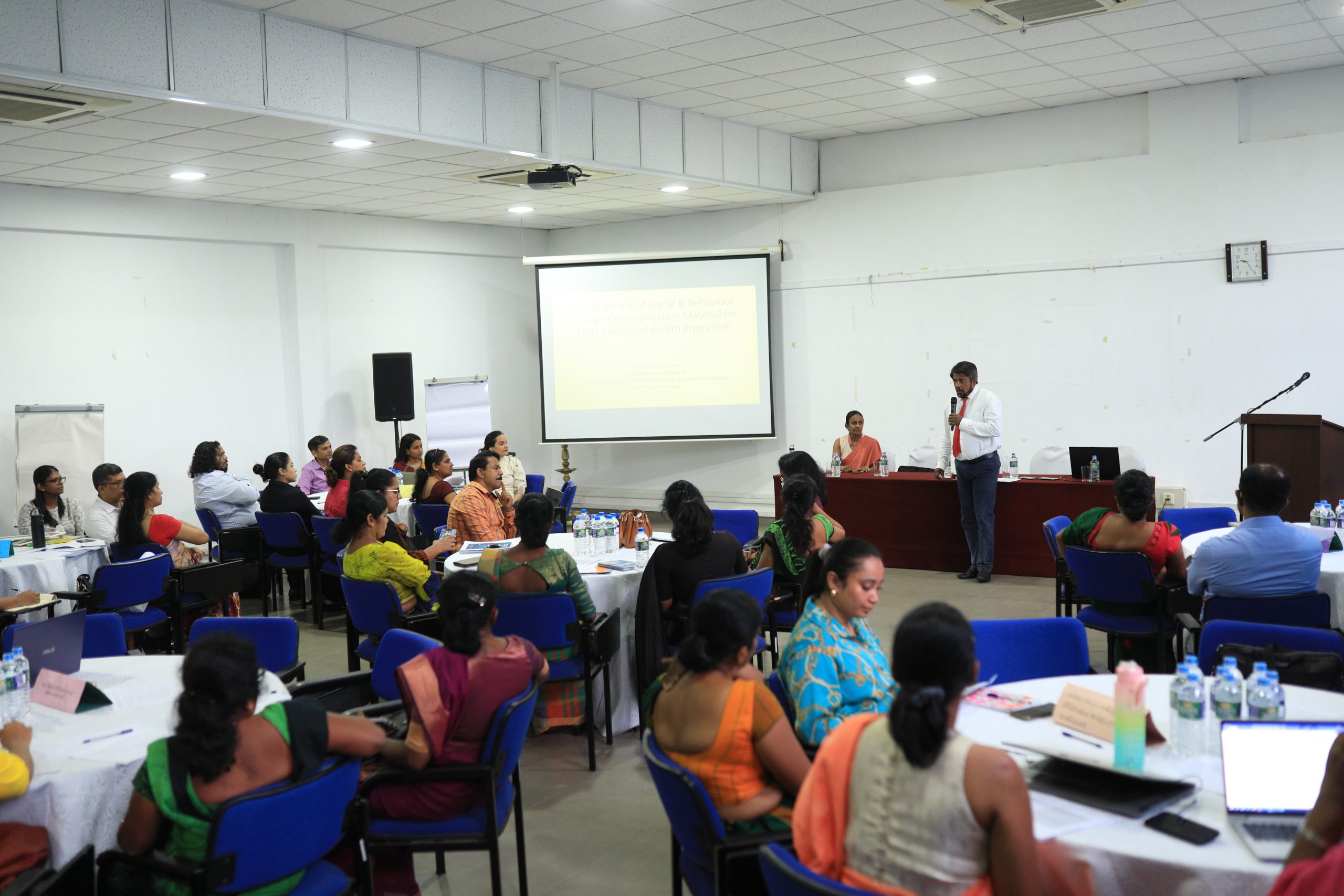
Workshop to develop material for SBC 26.03.2024
2 day Workshop to develop material for National Program on Social and Behavioural Change in Child Health Promotion 2024.03.26)
Held at Waters’ Edge
The Ministry of Women and Child Affairs Ministry has developed the National Multi-sectoral strategic action plan for early childhood care and development for a 5-year period based on Nurturing Care Framework by World Health Organization (WHO). Within this multi-sectoral strategic action plan, HPB has been delegated the task of development and implementation of a Social and Behavioural Change Strategy for child health promotion under key activity area: Families and Communities.
In accordance, the National program on Social & Behavioural Change for Child Health Promotion was established and through three consultative workshops, the HPB along with experts and public working groups has identified 29 child behavior outcomes for the programme. Out of the identified key desired behavior outcomes, 8 prioritized social and behavioral objectives have been identified to be achieved in the 1st phase up to 2030. Fourteen key stakeholders were identified, of which Ministry of Women and Child Affairs and Social empowerment, Ministry of Public Administration, Home Affairs, Provincial Councils, and Local Government, Ministry of Education and Ministry of Health are key partnering ministries, while other ministries are also important contributors for child health promotion.
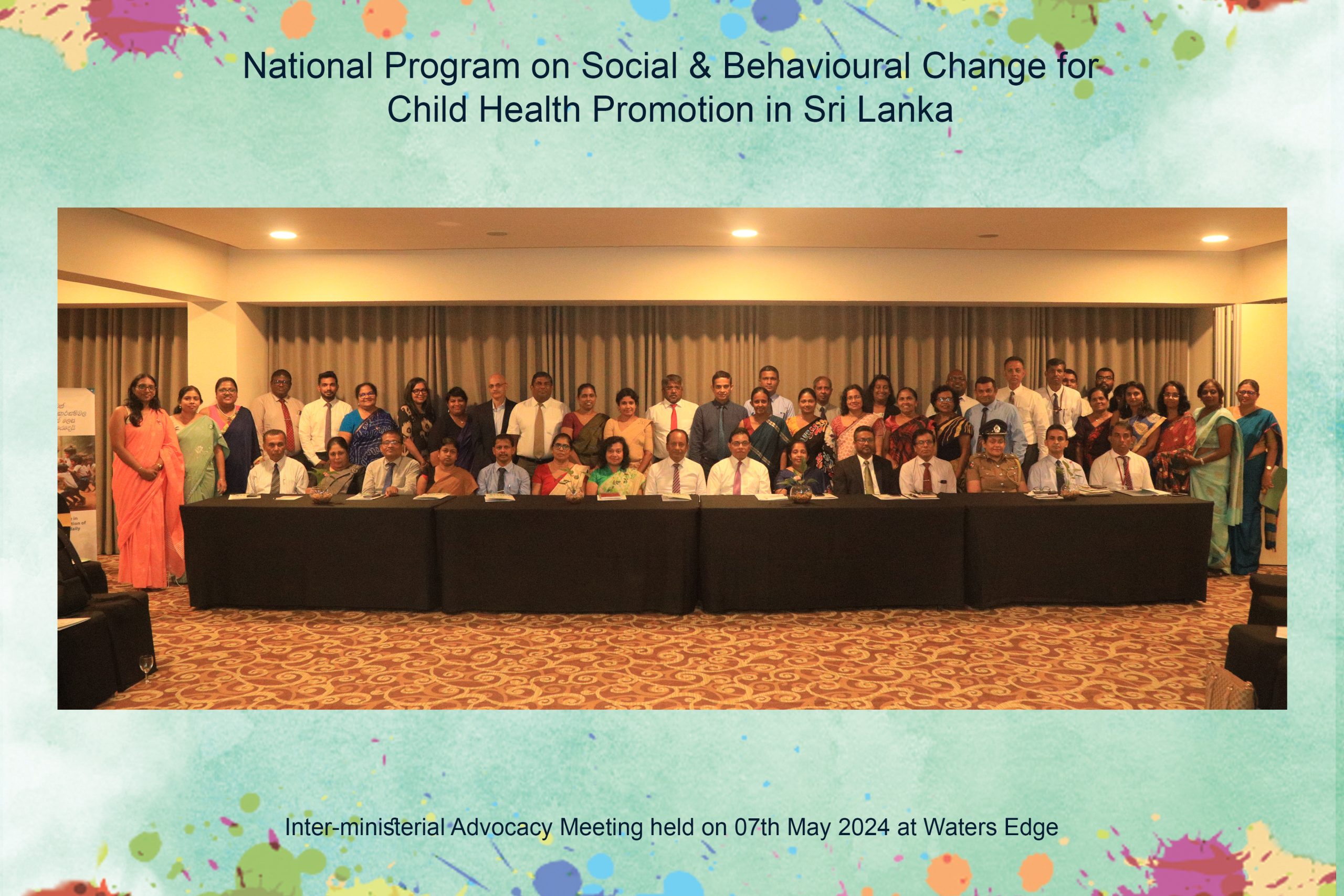
Inter-Ministerial Advocacy Meeting on SBC for Child Health Promotion 05.07.2024
Interministerial advocacy Meeting on National Program on Social and Behavioural Change in Child Health Promotion 2024.05.07)
Held at Waters’ Edge
An advocacy meeting for interministerial consensus on NAtional PRogram on Social and Behavioural Health in Child Health was chaired by Secretary of Health Dr. Palitha Mahipala, it was attended by representatives of
1.Presidential Secretariat
2.Ministry Of Women And Child Affairs And Social Empowerment.
3.Ministry Of Public Administration, 4.Home Affairs, Provincial Councils And Local Governments
5.Ministry Of Education
6.Ministry Of Transport
7.Ministry Of Urban Development & Housing
8.Ministry Of Highways
9.Ministry Of Public Security
10.Ministry Of Mass Media
11.Ministry Of Finance
12.Ministry Of Industries
13.Ministry Of Water Supply & Estate Infrastructure Development
14.Ministry Of Environment
15.Ministry Of Health
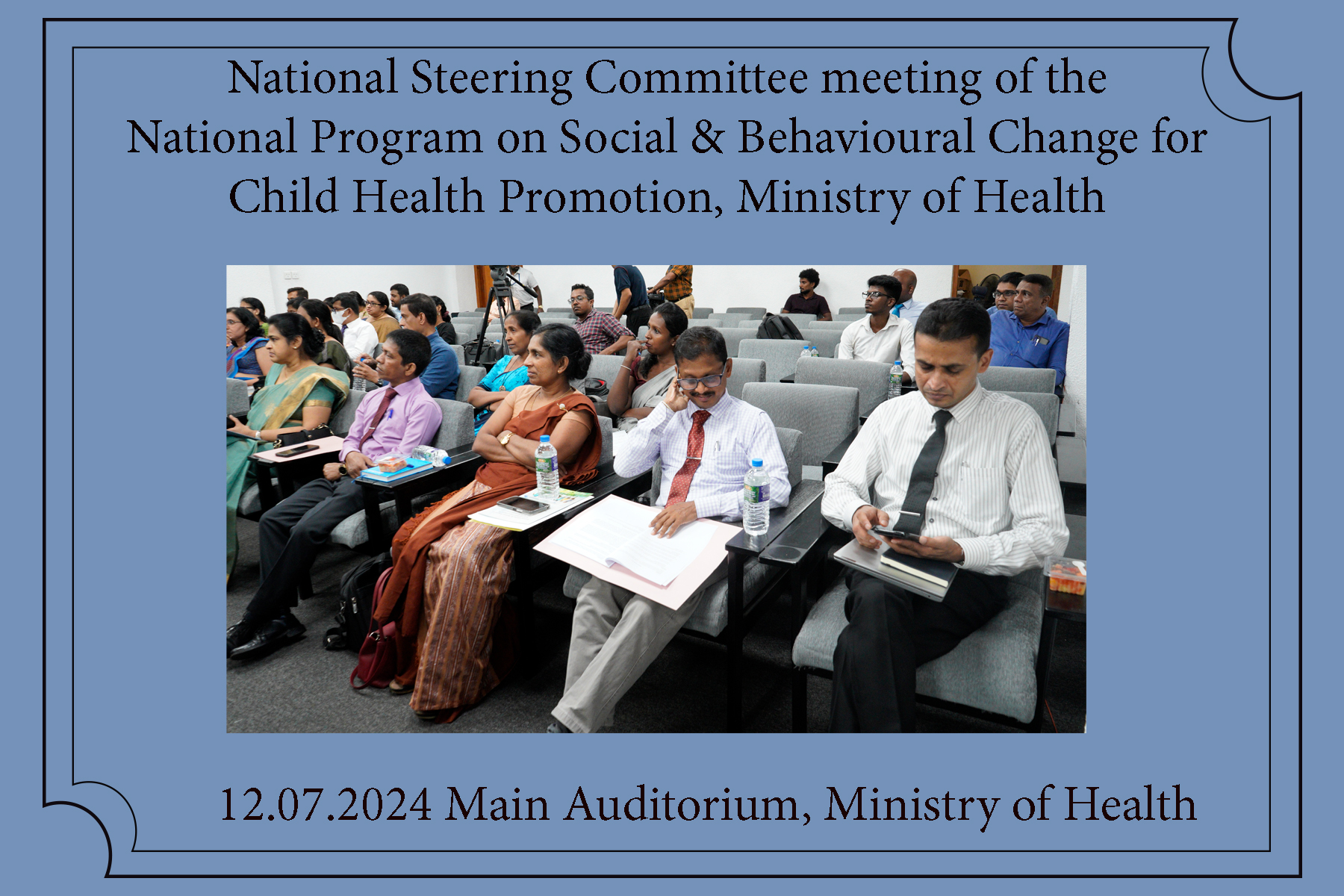
National Steering Committee for Child Health Promotion 12.07.2024
National Steering Steering Committee Meeting of the National Program on Social and Behavioural Change in Child Health Promotion (2024.07.12)
Held at Ministry of Health Mini auditorium
Chaired by Secretary of Health Dr. Palitha Mahipala, it was attended by representatives of 13 ministries.
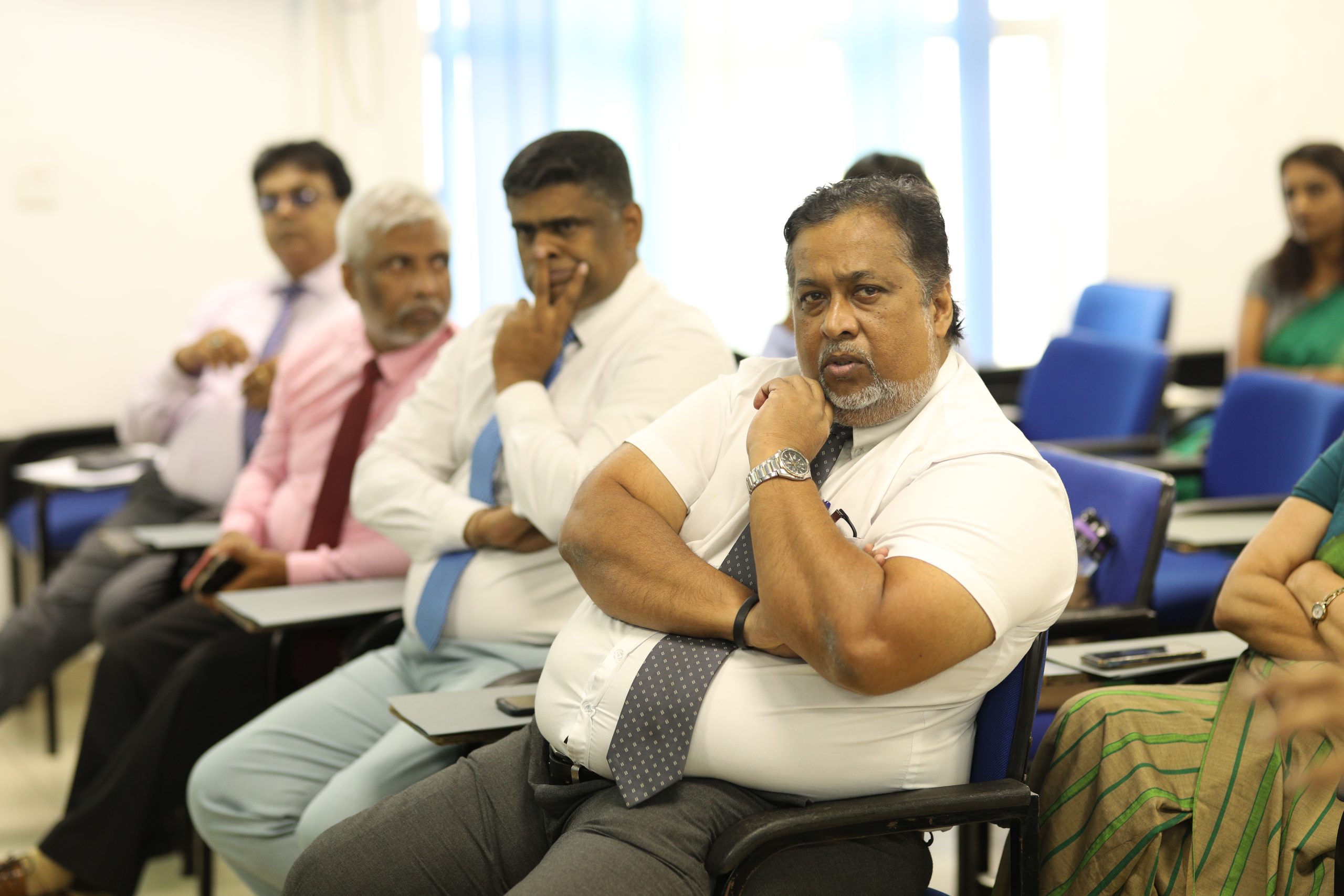
National Working Committee meeting for Child Health Promotion 16.08.2024
First Meeting of the working committee of the Ministry of Health on National Program on Social and Behavioural Change in Child Health Promotion 2024.08.16)
Held at Health Promotion Bureau
Chaired by DGHS, Dr. Asela Gunawardena
It was attended by Provincial Directors and Regional Directors.
The objective of the meeting was to establish the working committee to facilitate the planning and implementation of Health Ministry’s responsibilities under this program and Consensus for a general circular on pre-school setting development program.

 සිංහල
සිංහල